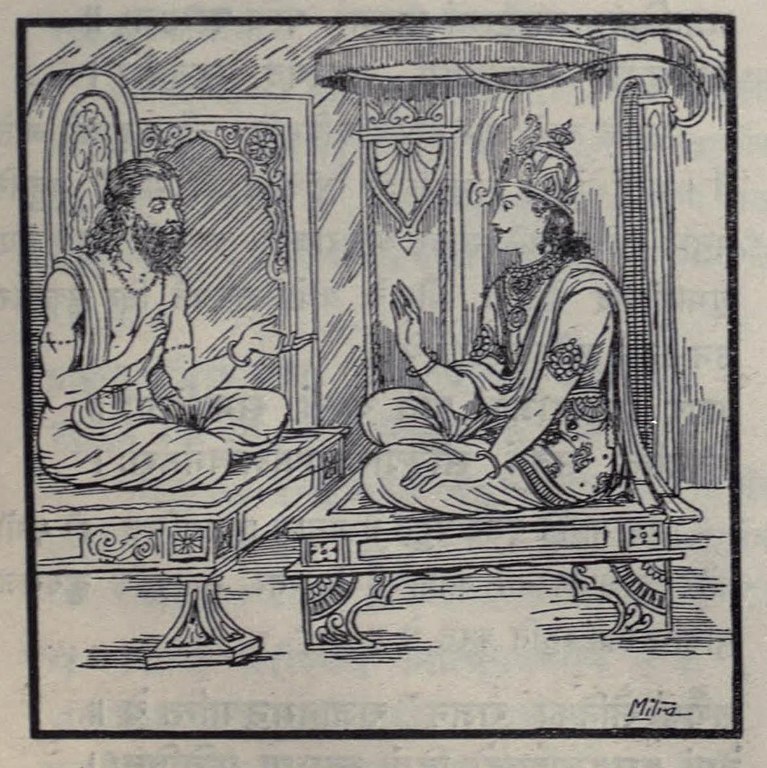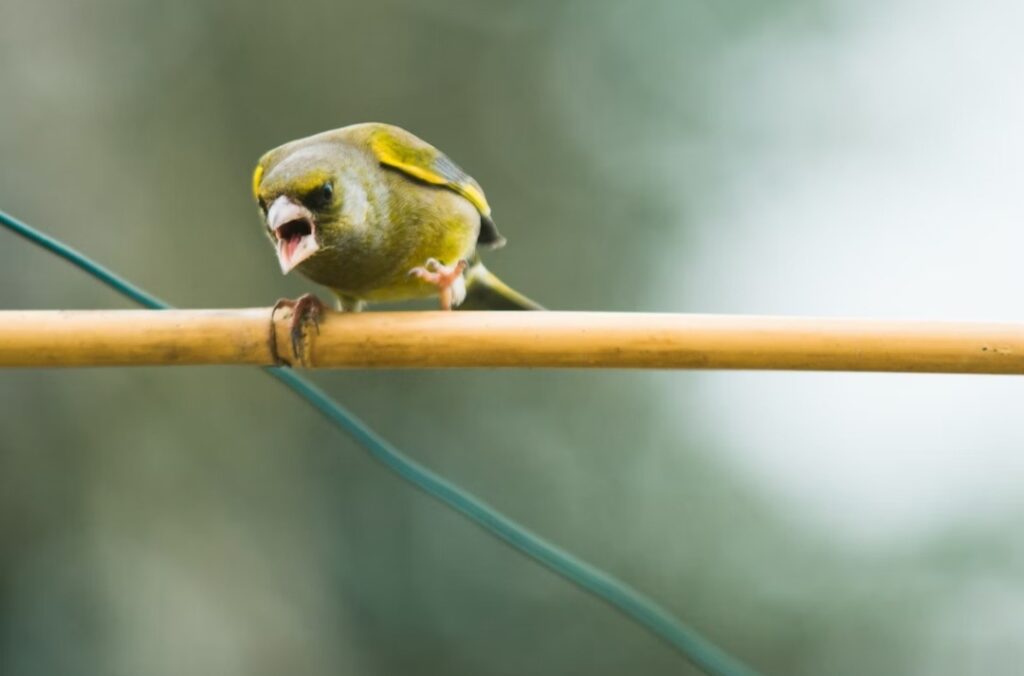
Table of Contents (The Complete Mahabharata in Simple English)
Previous Post: Sage Samika Tries to Help King Parikshit Escape Sringin’s Curse
| Note: In the previous post, we read about how Sage Samika felt compassion for the king and sent his disciple, Gaurmukha, as a messenger to forewarn the monarch about the curse. In this post, we will read about Parikshit’s response to the sage’s message. |
Parikshit himself, along with being a king, also practised ascetic penances. He was what we would call a royal sage, and he felt exceedingly sad when he learnt that he had insulted a sage who had undertaken a vow of silence. The anguish he felt because of his past action became even more magnified when he realised that, in spite of the insult, Sage Samika had responded with kindness by trying to save his life through Gaurmukha’s message. The monarch became deeply repentant, and at that moment, as he grieved, not for his own life, but for his conduct towards Rishi Samika, he looked very noble, magnificent, and even divine.
The king asked Gaurmukha to return to Sage Samika saying, “May the worshipful sage be gracious to me.”
After Gaurmukha had left, the king immediately consulted with his ministers for to decide the future course of action, and in the discussion, the wise king himself decided to ask his artisans to build a house on a single column.
This house was guarded day and night by soldiers. It was stocked with all the necessary medicines, while physicians, the king’s virtuous ministers, and Brahmanas who were well-versed in healing mantras stayed in that mansion with the king for his well-being. Protected on all sides, the king discharged his duties from that house for six days and six nights.
| Note: A few posts back, we read about the incident where Samika explained to his son, Sringin, that Parikshit was a very noble king who discharged his duties well, and did not deserve to be cursed. Here, above, we see that nobility through Parikshit’s words, actions, and emotions. |
And then, the sun arose on the seventh and final day of the curse.
| Note: In the next post, we will find out what happened on the seventh (last) day of the curse. |
Table of Contents (The Complete Mahabharata in Simple English)
Next Post: Sage Kasyapa Heads to Hastinapur to Help Parikshit


